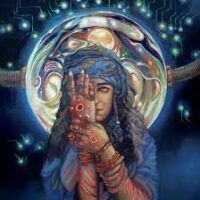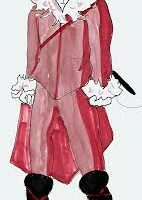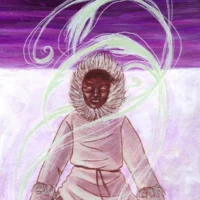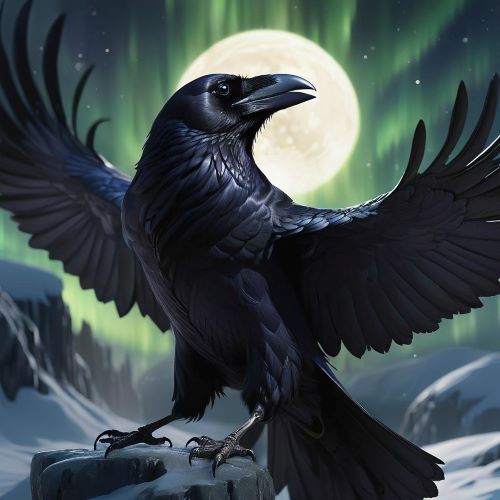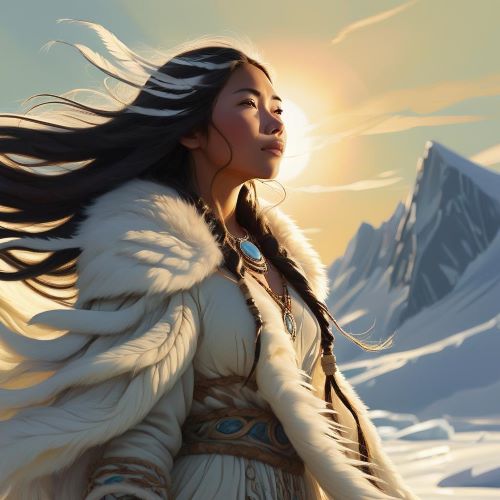Anguta : God of the Dead
Listen
At a glance
| Description | |
|---|---|
| Origin | Inuit Mythology |
| Classification | Gods |
| Family Members | Sedna (Daughter) |
| Region | Greenland |
| Associated With | Death, Underworld, Guiding Souls |
Anguta
Introduction
Anguta, a significant deity in Inuit mythology, occupies a complex and multifaceted role within their belief system. Across the vast Arctic regions inhabited by the Inuit, stories about Anguta vary, depicting him in diverse roles such as a creator god, a psychopomp (guide of the dead), or even a vengeful figure. In certain myths of the Greenlandic Inuit, Anguta is considered the creator god and holds the position of supreme being. However, in other narratives, Anguta is portrayed as a mortal figure. Moreover, he is also revered as a god of the dead and ruler of the underworld, playing a vital role in guiding souls after death. The name Anguta resonates with both creation and the afterlife, reflecting the rich tapestry of Inuit cosmology and the nuanced interpretations of this deity within their mythology.
Physical Traits
In mythological depictions, Anguta is often portrayed as a towering figure exuding a formidable presence that reflects the harsh Arctic environment. He may be envisioned with traditional Inuit attributes like fur clothing and distinctive facial features, emphasizing his deep connection to indigenous culture and surroundings. Unlike many mythological figures described in detail, Anguta’s physical appearance remains shrouded in mystery within Inuit stories, with little definitive information about his height, physique, or facial features. This ambiguity allows each listener to visualize Anguta in a way that aligns with their own beliefs and fears. Inuit mythology tends to focus less on physical descriptions of deities, emphasizing instead their roles, actions, and spiritual significance within the cosmos.
Family
Anguta is best known in Inuit mythology as the father of Sedna, the sea goddess associated with marine life. Their myths provide insight into their intricate familial dynamics within the Inuit belief system. Anguta’s relationship with Sedna is a central theme in these narratives, portraying him as her father in most accounts. However, the story of their bond is far from conventional. In certain versions, Anguta plays an active role in Sedna’s fate by either casting her into the sea, leading to her transformation into a sea goddess, or by being unable to prevent her abduction by a monstrous sea spirit in other versions. Regardless of the specific details, the strained relationship between Anguta and Sedna reflects the harsh realities of the Arctic environment, where survival is a constant struggle. This familial link highlights Anguta’s significance as a progenitor and central figure in Inuit mythology, showcasing how familial dynamics shape key narratives and beliefs within their cosmology.
Other names
Anguta is known by various names and titles across different Inuit groups and regions, reflecting his diverse roles and attributes within Inuit mythology. Apart from Anguta, he is referred to as “His Father,” Anigut, or Aguta in different contexts. These alternative names emphasize his connection to death, spirits, or the afterlife, showcasing the varied interpretations of this mythological figure across Inuit cultures.
In Greenlandic Inuit traditions, Anguta is sometimes addressed as “His Father” or “Anigut/Acuta,” highlighting the multifaceted nature of this deity. These variations underscore his paternal role while also suggesting potential associations with fear or reverence, depending on the specific cultural context and narrative interpretation.
Powers and Abilities
Anguta is a pivotal figure in Inuit mythology, serving as a psychopomp who guides souls from the land of the living to the underworld known as Adlivun, where his daughter, Sedna, rules. According to beliefs, souls must spend a year near Anguta in Adlivun before ascending to Qudlivun (“those above us”), a realm of eternal bliss. In certain versions of the myth, only unworthy souls are required to remain with Anguta in the land of the dead, where he may torment them by pinching them.
His powers and abilities are intricately linked to his role in the afterlife. While some narratives depict Anguta as the supreme being responsible for creating the world, he is more commonly seen as a psychopomp guiding souls to Adlivun, often depicted as a cold and desolate place beneath the sea. In some stories, Anguta may act as a potentially tormenting figure within this realm, prodding souls to move on to the next stage of their existence.
Other versions of the myth suggest that Anguta allows souls to rest for a year before they ascend to Qudlivun, a land symbolizing perpetual light and happiness. These varied portrayals reflect the complex Inuit view of death, which is regarded as both a natural part of life’s cycle and a potentially perilous journey.
Moreover, Anguta plays a significant role in Inuit shamanic traditions. Shamans, known as angakkuq, are believed to have the ability to travel to the spirit world, including Adlivun. In some instances, they may interact with Anguta to appease Sedna and ensure continued bounty from the sea. These interactions underscore the interconnectedness of the spirit world and the physical world in Inuit cosmology, emphasizing the importance of spiritual guidance and reverence for the realms beyond.
Modern Day Influence
Anguta’s enduring significance transcends time and remains prominent in various contemporary forms within and beyond Inuit communities. Artists, writers, and cultural practitioners draw upon Anguta’s mythology to delve into themes of mortality, spirituality, and the profound human connection to nature in the Arctic regions. Through art, literature, and storytelling, Anguta serves as a symbol of resilience and cultural heritage, bridging ancient beliefs with modern interpretations.
In today’s context, Anguta’s influence is evident in the continued respect and reverence for the natural world among the Inuit people. The roles and narratives of Anguta and other deities remain integral to Inuit cultural and spiritual practices, highlighting the interconnectedness of all aspects of existence—life and death, the physical and spiritual realms, and the individual and community.
Despite the influence of Christianity on traditional Inuit belief systems in recent centuries, Anguta persists in the cultural memory of the Inuit. Artists incorporate depictions of Anguta into their sculptures and artwork, while storytellers pass down tales about him to new generations, ensuring his legacy endures. Anguta’s enduring presence serves as a poignant reminder of the profound understanding of the natural world and the delicate balance between life and death, resonating deeply within Inuit culture and beyond.
Related Images
Frequently Asked Questions
What is lorem Ipsum?
I am text block. Click edit button to change this text. Lorem ipsum dolor sit amet, consectetur adipiscing elit. Ut elit tellus, luctus nec ullamcorper mattis, pulvinar dapibus leo.
What is lorem Ipsum?
I am text block. Click edit button to change this text. Lorem ipsum dolor sit amet, consectetur adipiscing elit. Ut elit tellus, luctus nec ullamcorper mattis, pulvinar dapibus leo.
What is lorem Ipsum?
I am text block. Click edit button to change this text. Lorem ipsum dolor sit amet, consectetur adipiscing elit. Ut elit tellus, luctus nec ullamcorper mattis, pulvinar dapibus leo.
What is lorem Ipsum?
I am text block. Click edit button to change this text. Lorem ipsum dolor sit amet, consectetur adipiscing elit. Ut elit tellus, luctus nec ullamcorper mattis, pulvinar dapibus leo.
What is lorem Ipsum?
I am text block. Click edit button to change this text. Lorem ipsum dolor sit amet, consectetur adipiscing elit. Ut elit tellus, luctus nec ullamcorper mattis, pulvinar dapibus leo.

